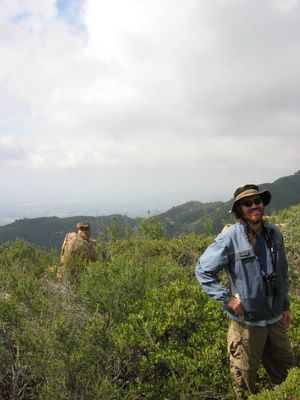2008 is the Year of the Frog and today seems to be the day of the amphibian for me. Budak sent me this video which he asked people to "watch and cringe" but all I could think about was - that was probably shot in a tank. While the video doesn't quite suit the message, the message itself is fantastic.
Amphibians are important because they serve as an indicator for the health of our ecosystems. They are like canaries in the coal mine, warning us of danger ahead of us. That also means that they are the first to die. Unfortunately, it would seem that humans are oblivious to the warning signs of frogs going extinct! 50% of 6,000 described amphibian species are threatened with extinction and 165 species have possibly already gone extinct. But knowing humans and our socially preconditioned instincts to favour mega faunas, please don't let these poor amphibians sacrificed for naught. In case we forget the story of the boiling frogs, here's a reminder:
They may be slimy and have cute pink long swirly tongues but they may be just as important or more important than your panda or polar bears! They might even be the next cure for HIV! They may just be your natural solution to putting an end to mosquito infestations. In India, there were reports of pesticides meant to kill mosquitoes resultantly killing the mosquitoes natural predator - frogs - instead!
This monkey doesn't knows a lot about amphibians but there is a new amphibian addition to the NUS Department of Biological Science heading up a new lab on Evolutionary Ecology and Conservation who specializes precisely on amphibians (and reptiles)! If you want to know more about the endangerment of frogs and other amphibians, do attend David Bickford's talk on "Where are all the frogs". The talk will be held on 9 March 2008, 12pm at the Singapore zoo. More details at Habitatnews.
Related reads:
Amphibian Ark
"Where are all the frogs?", Talk by David Bickford
"Frog Peptides Block HIV in Lab Study", ScienceDaily, 30 Sept 2005
"Army of frogs to combat killer mosquitoes", The Times, 22 June 2007
Read full article here






























 I can be contacted at
I can be contacted at 






